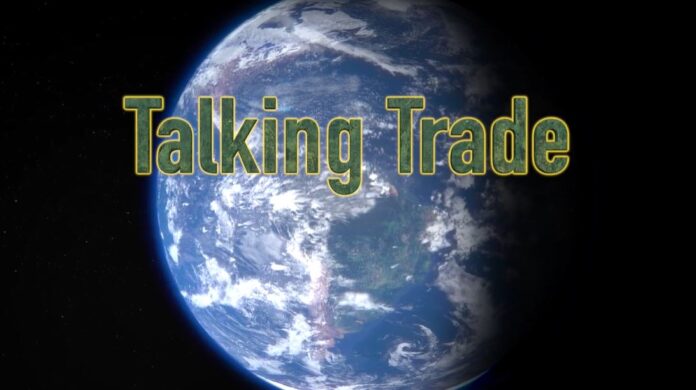Eaton Corporation is using AI to model tariff impacts throughout supply chains amid global trade uncertainty, a buyer for the company said during a live “Talking Trade” discussion.
Waukesha County Technical College’s School of Business and WisBusiness.com hosted the live podcast this week, focusing on challenges and opportunities presented by tariffs. Jake Boniface, senior buyer at Eaton Corporation and a WCTC graduate, said the power management company has put a “huge focus” on supply chain resiliency while tariff ripple effects play out.
“If these tariffs have taught us anything, it’s how unpredictable things can be, even in a short time horizon, like a few months to a year,” he said. “So having a supply chain that can pivot, that we have options and we don’t have to scramble with stuff already on the water.”
Boniface said the company, which has U.S. headquarters in Ohio, has “taken a hit” to its margins from tariffs. He noted the electrical transformers it makes are built with steel and aluminum, which have faced various tariffs under the Trump administration. And changes to U.S. tariff policy are often made with little warning, he added, disrupting plans and causing whiplash in pricing.
Still, he said the company isn’t “changing course” or rethinking its long-term strategy despite grappling with greater uncertainty. As it navigates this challenge, the company has deployed AI tools to “streamline” its analytics and improve supply chain management.
“We do have an AI-driven model that can predict tariffs throughout, end-to-end with the business,” he said. “Eaton’s a very vertically integrated business … a lot of my suppliers can also be sister companies or subsidiaries of Eaton, so that tariff that’s being paid several steps down, how can we track that … AI is instrumental to doing that.”
The conversation also touched on WCTC’s approach to preparing students for the world of international trade. Susan Dragotta, supply chain and global business instructor at the college’s business school, noted she often tells her students that 96% of the world’s population is outside of the United States.
“So we really focus on, for our business students, understanding opportunities around selling overseas, of course sourcing also,” she said.
Meanwhile, “Talking Trade” co-host and M.E. Dey & Co. President Sandi Siegel said she was happy to see some of the results of recent Trump negotiations between the United States and Asian trade partners.
“This recent trip to Asia, a lot of great things I am excited about, that will help settle down some of the chaos,” she said. “Some major deals with China.”
Siegel noted China has reversed course on stopping issuing export licenses to many suppliers and suspended retaliatory tariffs on U.S. goods, while also pledging to purchase millions of tons of American soybeans after previously cutting off imports as part of the back-and-forth with the Trump Administration.
“Historically, China has purchased 60% of Wisconsin’s soybeans … so that’s a big win, that’s been somewhere we got hit really hard, again with our farmers and particularly here in Wisconsin,” she said.






